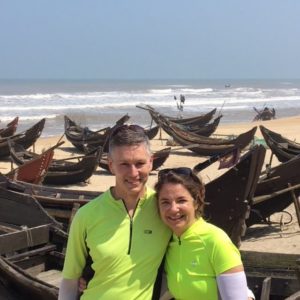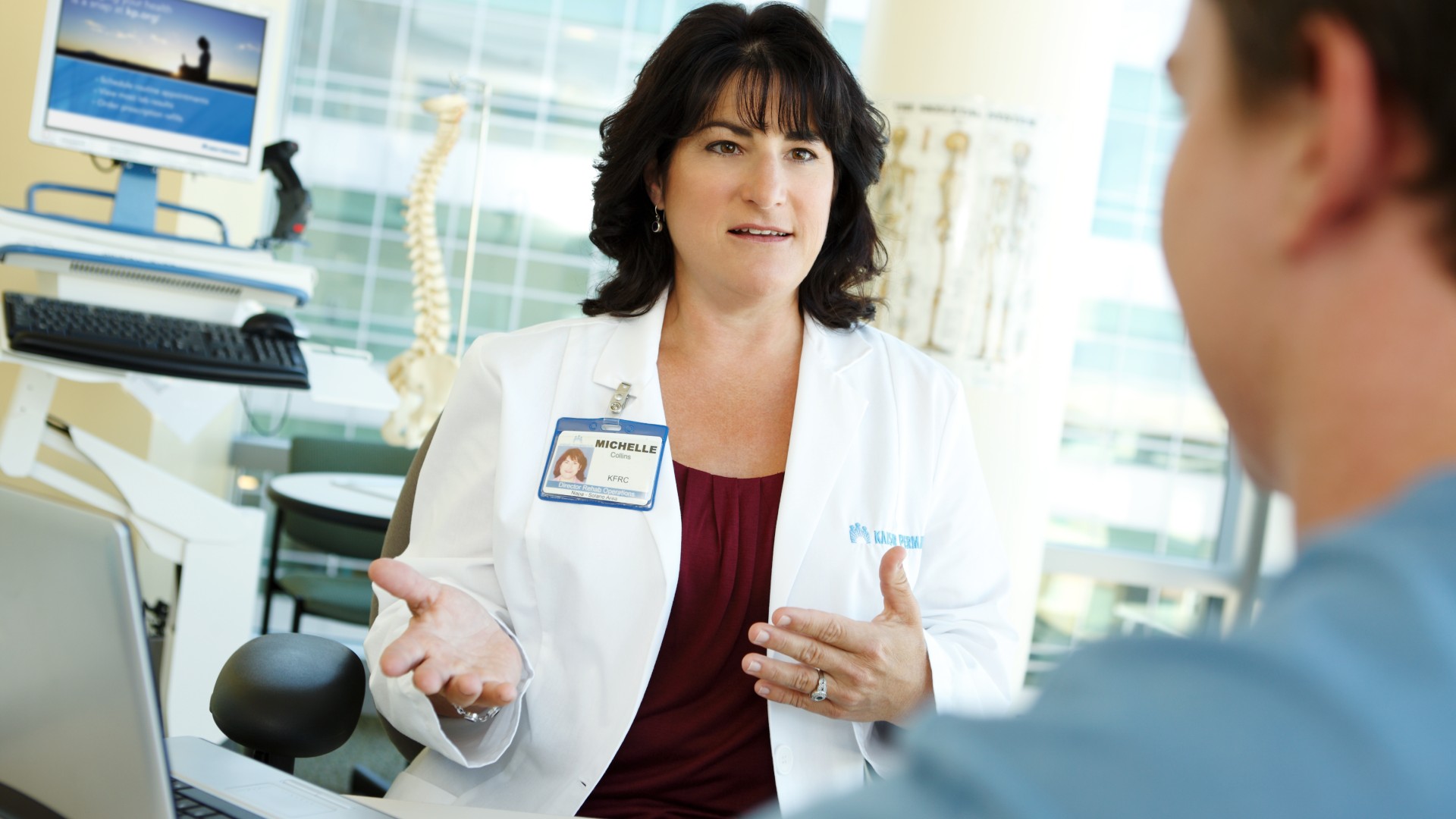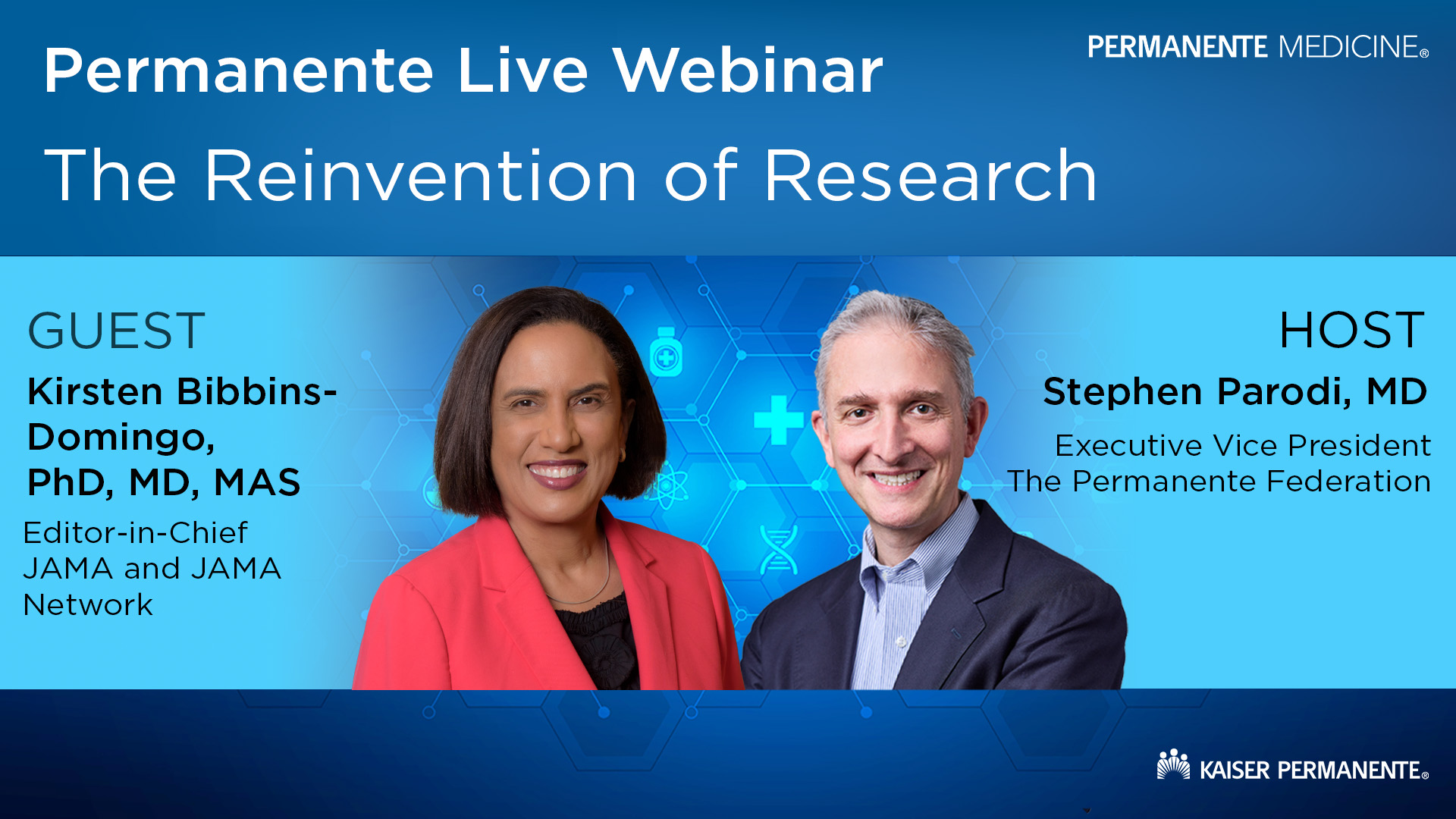Kaiser Permanente's report in NEJM AI details insights from a large-scale rollout of ambient AI clinical documentation technology.

Five Questions for Doug Corley, MD
Gastroenterologist on Cancer Research and Hidden Secrets of the Colon
Doug Corley, MD, PhD, is a gastroenterologist with The Permanente Medical Group, working at the Kaiser Permanente San Francisco Medical Center, and a research scientist at the Kaiser Permanente Division of Research. Dr. Corley focuses on why people get certain colorectal and gastrointestinal cancers. He looks for the best ways to prevent these cancers and detect them early, when they’re most treatable.
Q: If you had to think back, is there a single moment in your life that sparked your interest in what you’re doing now?
Around 1990, there was a report that the frequency of a certain type of esophageal cancer (in your swallowing tube) had tripled over the prior two decades, without clear explanation. It seemed like a Sherlock Holmes mystery and sparked my interest in exploring why people get cancers and how to prevent them.
Q: We know our colon is important…but what don’t we know?

More bacteria live in a tiny area of your colon than there are people on earth. There are more than 200 billion in every 1/10 of an ounce of colon contents. This is totally normal, and these bacteria work with our body to process food and adjust other bodily functions — we cohabitate with a lot of other living organisms.
Q: What kind of research are you doing and why do you think it’s important?
Our research is focused on how to make cancer screening tests as effective as possible and how to make sure people get them. Although about 80 percent of people within Kaiser Permanente who are recommended for colon cancer screening receive the test, that rate is much lower outside Kaiser Permanente, and even the 80 percent is below what we have achieved for other cancers, such as mammography for breast cancer.
And, our research is constantly changing, from primarily exploring the “whys” towards more rubber-meets-the-road topics of improving clinical care on a day to day basis. This helps make sure that what we know works is used consistently and optimally.

Q: In your free time, what do you like to do?
I enjoy spending time with my family and friends, particularly in the outdoors, hiking and biking. I also enjoy playing music (unskillfully) and exploring our beautiful state.
Q: March is Colorectal Cancer Awareness Month. Any advice?
If you or one of your family members is between the ages of 50 and 65, make sure you are up to date with colon cancer screening! If unsure of the tests available, or whether you are up to date, ask your doctor. In general, you would be up to date if you have completed a colonoscopy in the last 10 years (and it was normal) or if you have completed a fecal immunochemical test (a test for blood in the stool) in the last year.
Colon cancer screening is remarkably effective, by far the most effective cancer screening test available for any cancer type. Colon cancer is fairly common but the majority of deaths from it can be prevented with appropriate screening.
This is reprinted from the Division of Research Northern California website.


